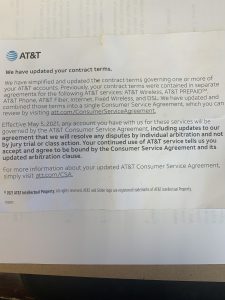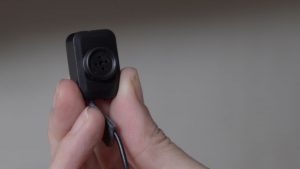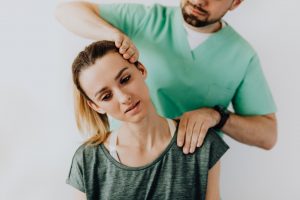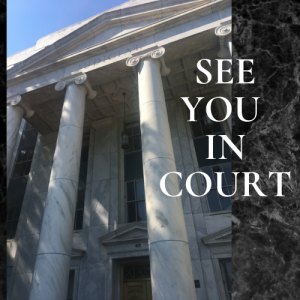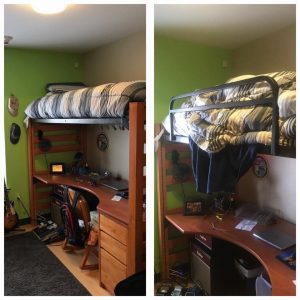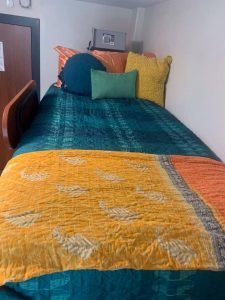
I have been enjoying seeing posts on social media of families taking their college-aged kids to their colleges and universities and helping them move in to their dorm rooms. This is a rite-of-passage for many young people as they begin their college careers and are perhaps living away from their home and their parents for the first time in their lives. The personal injury attorney in me can’t help but notice on the many dorm room photos online of how many of the high bunk beds have bedrails installed versus how many don’t. And this is the problem: no high bunk bed in any college dorm room should be without a bedrail installed. The photograph above makes me happy because it shows a high bunk bed with a bedrail installed. This student will be safe when sleeping in this high bunk bed.
This issue came to light several years ago when Clark Jacobs, then a Georgia Tech student, fell out of his lofted bed in his fraternity house. He fell 7 feet from his bed to the hard floor of his room. He was diagnosed with a fractured skull and a brain bleed which then led to a stroke. Five years and hundreds of hours of therapy later, including in-patient rehabilitation at Shepherd Center, Clark graduated from Georgia Tech in the summer of 2020. I blogged about this incident last year and about a similar incident that happened to a young woman who was a student at Valdosta State University. That woman sued the Georgia Board of Regents and lost her case in the Georgia Court of Appeals. Valdosta State Univ. v. Davis, A20A1036, 2020 WL 4745074 (Ga. Ct. App. Aug. 17, 2020). Her attorneys petitioned the Georgia Supreme Court for Certiorari, but the Supreme Court declined to hear this case earlier this year, which means the Georgia Court of Appeals’ opinion stands.
Following my September 2020 blog on college bedrails, Mariellen Jacobs, Clark Jacobs’s mother, reached out to me to discuss this ongoing problem. Given the fact that she had witnessed her son’s injury and recuperation first hand from an incident that, arguably, never should have happened in the first place, Mariellen Jacobs has become quite an expert on this subject matter. Her son endured a long recovery at Shepherd Center with medical bills totaling over $1 Million dollars. In Georgia, through the work of her foundation, Rail Against the Danger, Ms. Jacobs was able to convince the University System of Georgia (and all 26 state campuses) to become “rails ON” so that at residence hall check-in, every elevated bed has a safety rail in place to prevent injury. You can find information online that indicates that in at least a Georgia dorm room, a bedrail must be installed on the top bunk. You will find this language in the Georgia Tech Housing and Residence Life webpage:
 Atlanta Injury Lawyer Blog
Atlanta Injury Lawyer Blog





